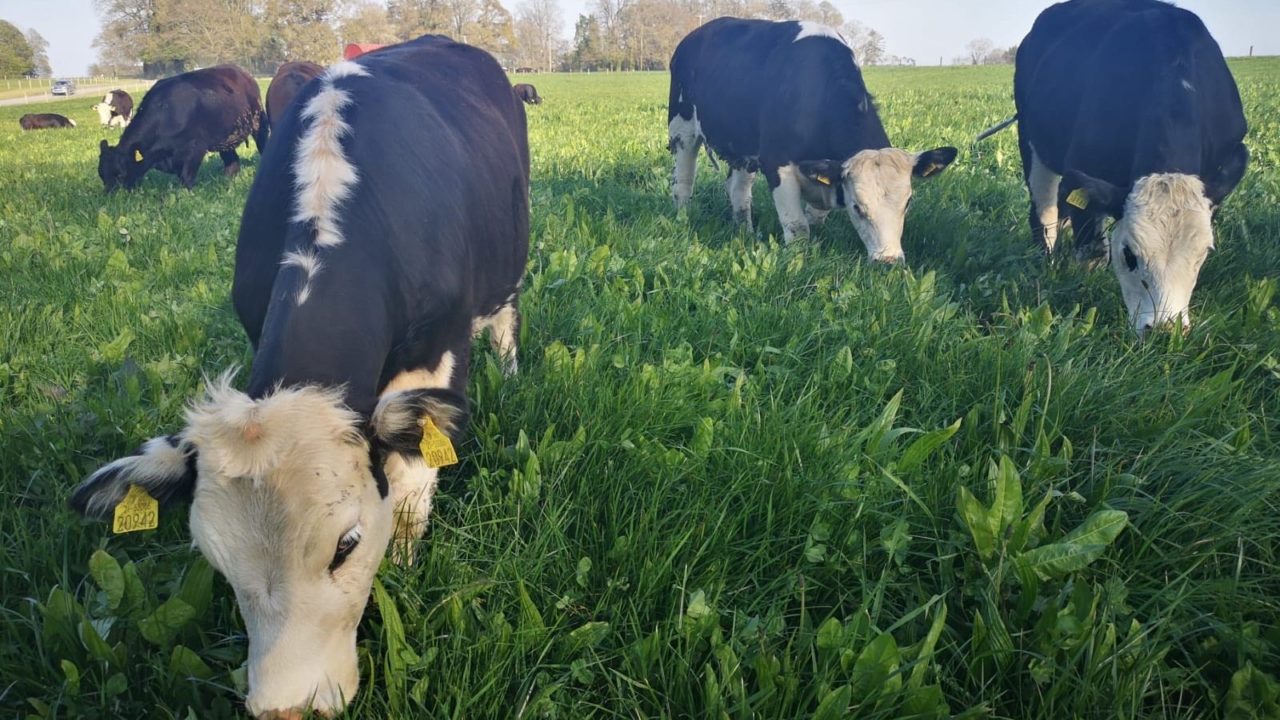In recent times there has been a growing discussion around the feasibility of producing Irish beef in a carbon-neutral manner with ‘net-zero’ credentials.
Ongoing projects, such as what is taking place at the Devenish Lands at Dowth aim to have a carbon-neutral beef and sheep farm by by 2025.
However, during a time when consumers are paying more for beef and cattle prices have increased significantly, the big question is – will markets be able to support a further lift in beef prices to offer a ‘premium payment’ for net-zero carbon beef?
A recent beef report by Rabobank has noted that many companies are now taking the next steps to meet emissions-reduction goals.
The Rabobank report noted that cattle prices across the seven major exporting countries remained strong through quarter one this year.
A combination of a low beef inventory and favourable seasons in Australia continues to support cattle prices, while firm consumer demand supports US prices despite the higher than expected production.
In the midst of current positive beef markets, low-emission and climate-neutral beef products are beginning to appear on shelves around the world at a time when translating sustainability and emission commitments into action is becoming more challenging.
The report noted that consumers around the world are paying more for beef now than at any previous time in history.
Rabobank’s senior animal protein analyst Angus Gidley-Baird said: “In our view, the full cost of production (sustainability initiatives aside) is not currently being passed onto consumers.
“Consumers’ willingness and ability to pay [for beef ] is likely to be tested in 2022 as inflation levels climb around the world.”
According to the report, the first signs of softening consumer confidence are already apparent in most markets, with wholesale prices for beef coming under pressure even though production costs are higher.
The report claimed that a downward adjustment of both cattle prices and producer input costs will be needed to restore processor margins and to maintain beef’s competitiveness with consumers.
Ongoing adjustments of consumption and margins is expected in all markets heading into quarter three of this year 2022, according to Rabobank’s senior animal protein analyst.
A return on this investment may take many different forms regardless of whether the economic outlook makes it a favourable time to invest in production system changes, action is required to deliver on commitments.
Several of the first movers in the carbon-neutral beef space are utilising offsets to generate their carbon-neutral status, the report noted.
These offsets add costs to the supply chain but the reduction of emissions, while saving the costs of offsets, has its own costs.
For businesses to implement carbon-reduction practices, a return on investment or revenue to cover these costs is going to be needed, according to Rabobank.
The report outlined five possible forms of improving producer returns and noted many of these would will occur simultaneously:
- Access to the market;
- Access to finance;
- Improving productivity;
- Premium prices;
- New revenue streams.
Concluding, Rabobank’s senior animal protein analyst Angus Gidley-Baird said: “Theoretically, such a return needs to sit somewhere above ‘business as usual’ to incentivise change, but below the full cost of purchasing offsets to maximise efficiencies.”
